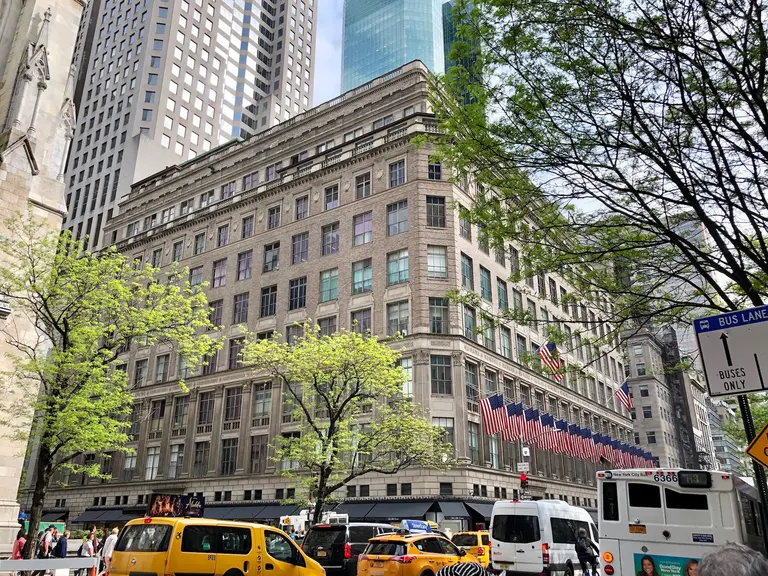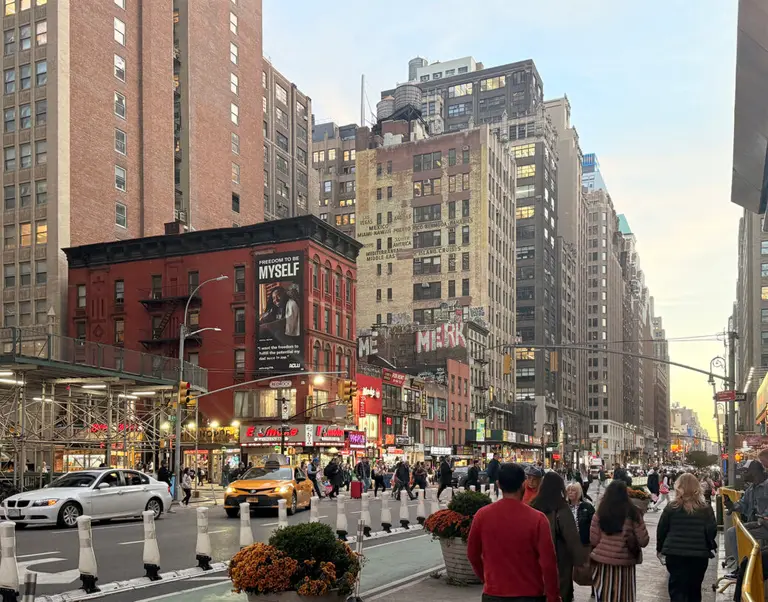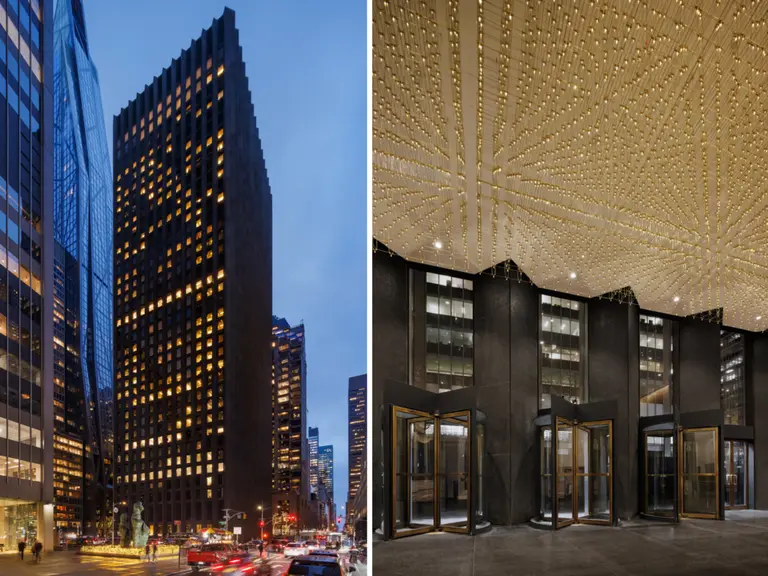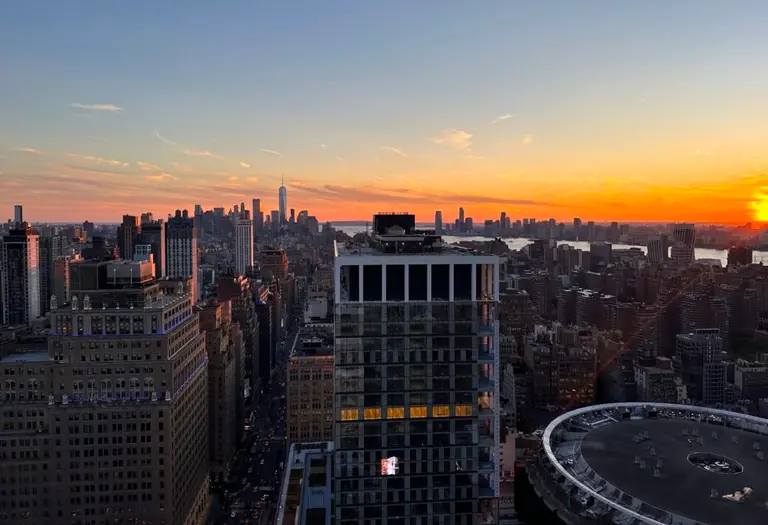Landmarks approves Snøhetta’s new designs for Phillip Johnson’s 550 Madison Avenue

In December, 6sqft reported that architecture firm Snøhetta had unveiled a preservationist-friendly revision to a controversial design for an updated AT&T building at 550 Madison Avenue; last month brought more details from the firm’s proposal that was submitted to the Landmarks Preservation Commission (LPC). The most recent design is one of several revisions, each followed by controversy over being seen by preservationists as diverting too much from the building’s original design by Philip Johnson and John Burgee. Yesterday LPC approved the new preservation-friendly designs–with some modifications. The office tower is now on track to reopen in 2020.
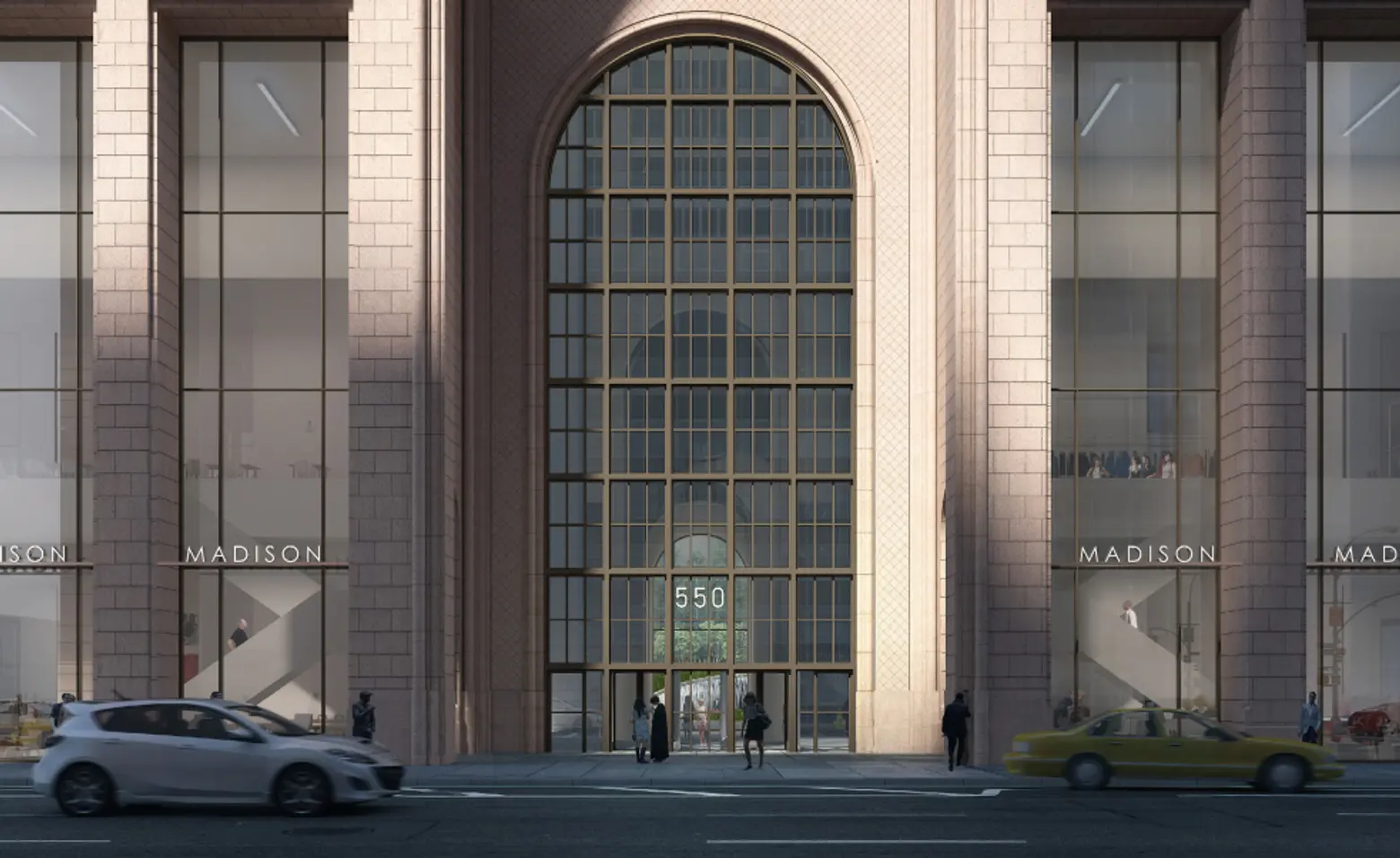
In addition to comparisons to the original, new designs had the added challenge of having to consider the subsequent revamp that made it the Sony building in 1994, which replaced the building’s open Madison Avenue arcade with “Sony Experience” storefronts and covered a rear public arcade with a glass roof. Unlike the earlier version, Snøhetta’s newest design for 550 Madison considers the historic importance of the Postmodern icon in a “preservation-first approach.”
The submitted revision preserves 94 percent of the facade including its iconic top and includes three tall windows on either side of the building’s 110-foot-tall entrance archway, recessed to emphasize the granite columns between them. Nearly transparent mullions would take the place of the current darkened ones.
Erik Horvat, Director of Real Estate for developer Olayan America, said: “On behalf of the ownership team, I thank the Landmarks Preservation Commission and Community Board 5 for their support for the new preservation-led design for 550 Madison. We are very excited to start exterior work, and continue ongoing interior improvements, to restore the building to its original prominence as a top Class A commercial destination in New York City. With modern interiors, a world-class public open space, and preserved façade, the building will once again attract top companies to East Midtown. We look forward to collaborating with the Landmarks Preservation Commission as we finalize our plans.”
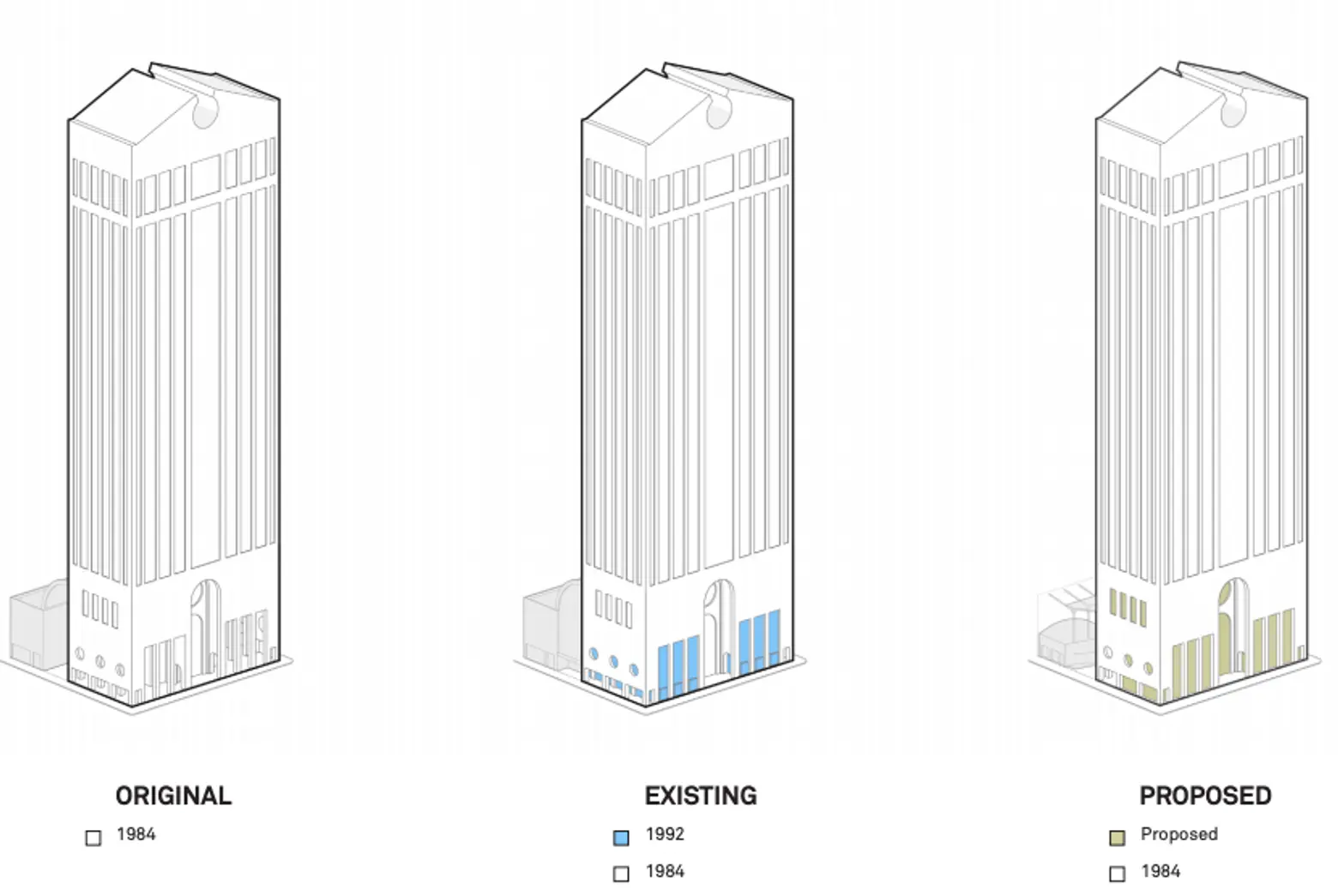
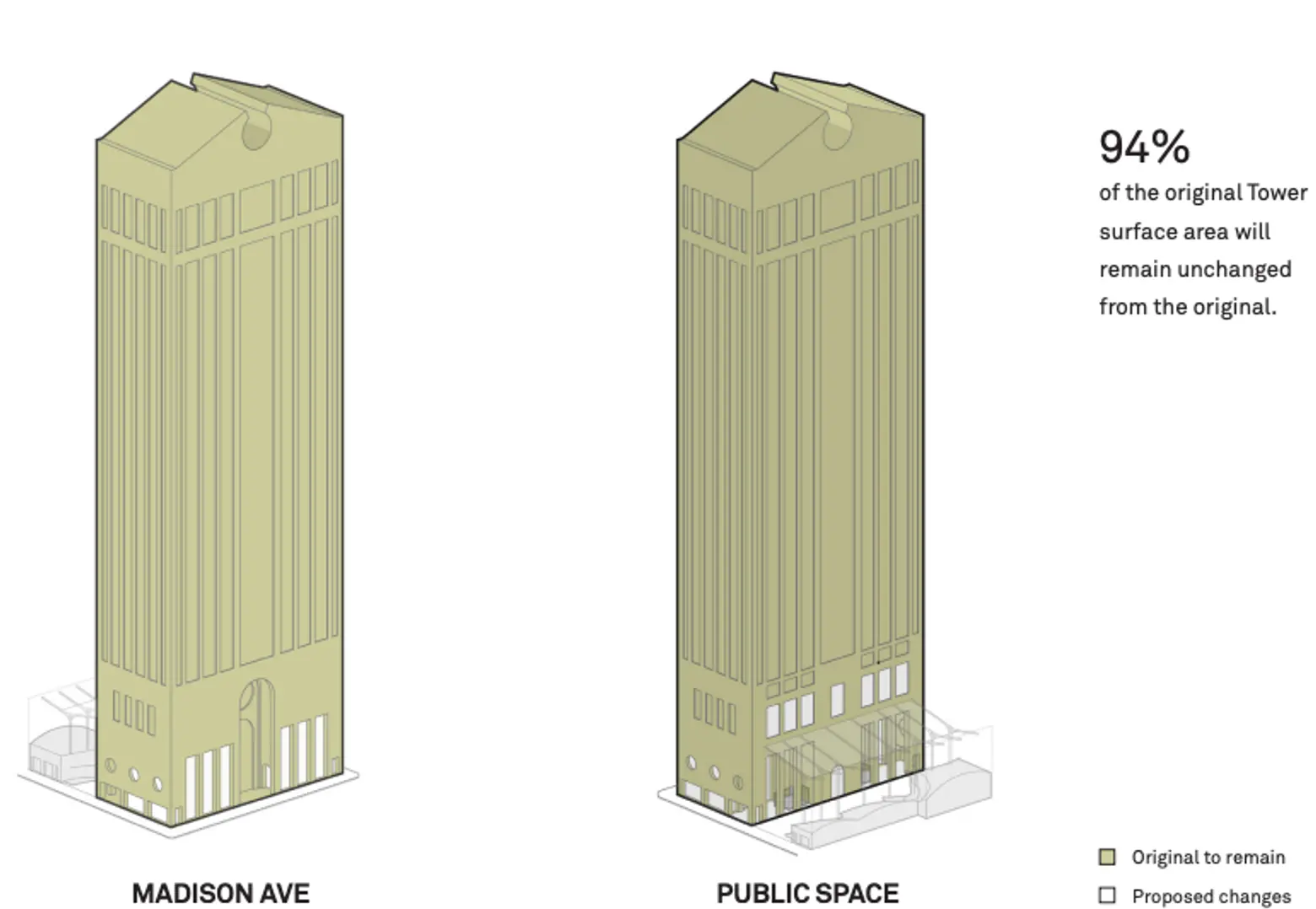
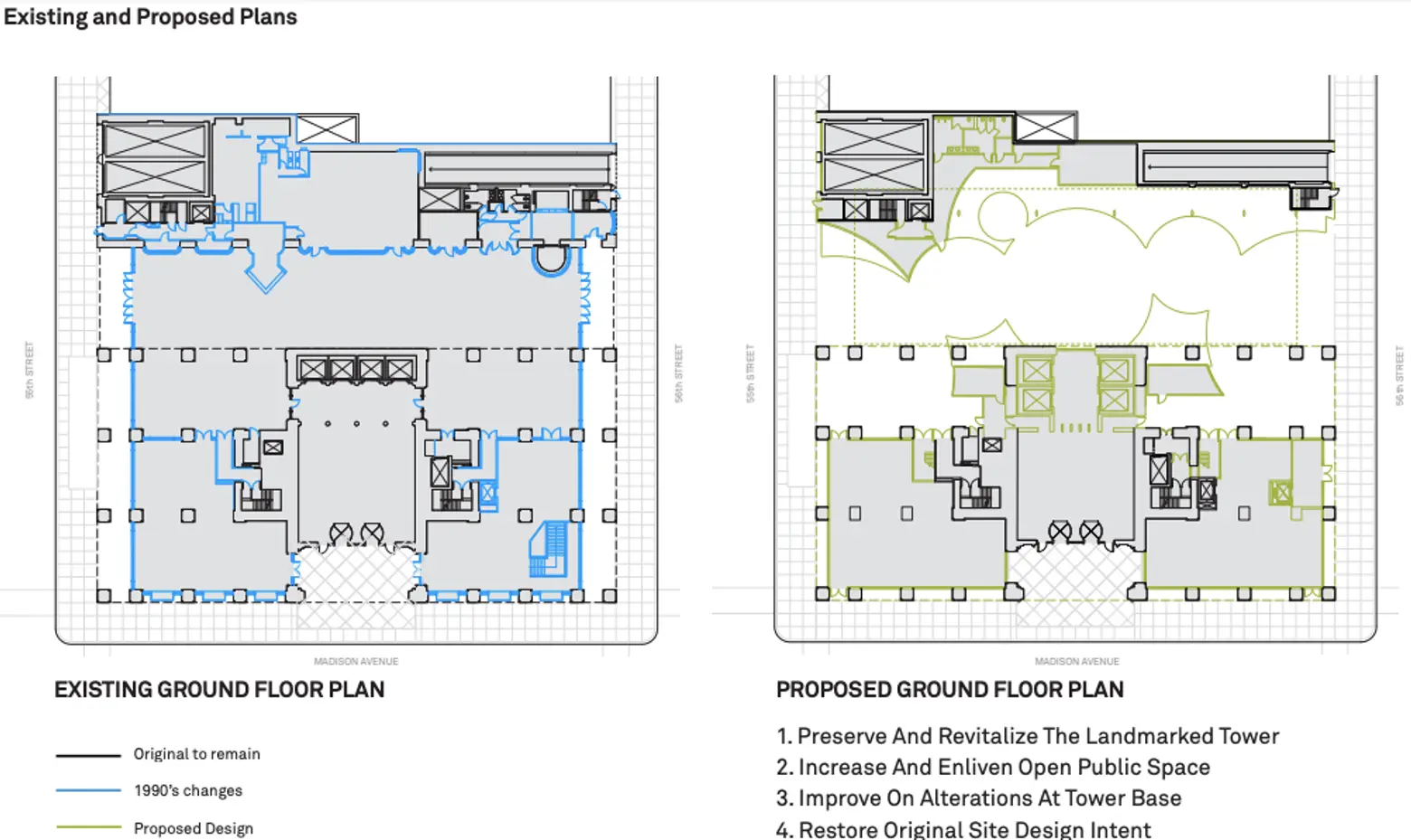
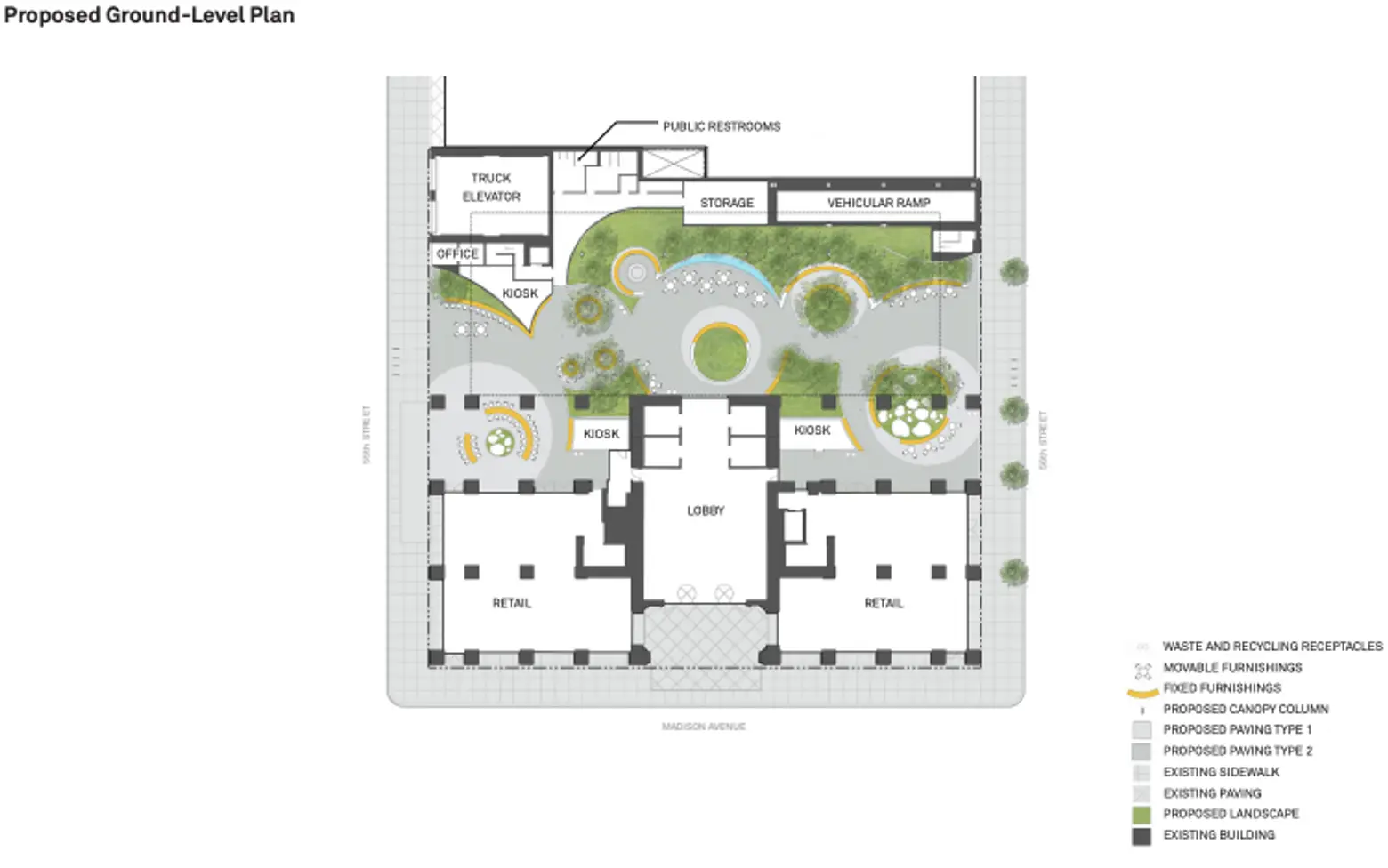
The new plan includes designs that
- Preserve the landmark tower
- Expand public open space
- Modernize interiors
- Create sustainable infrastructure upgrades
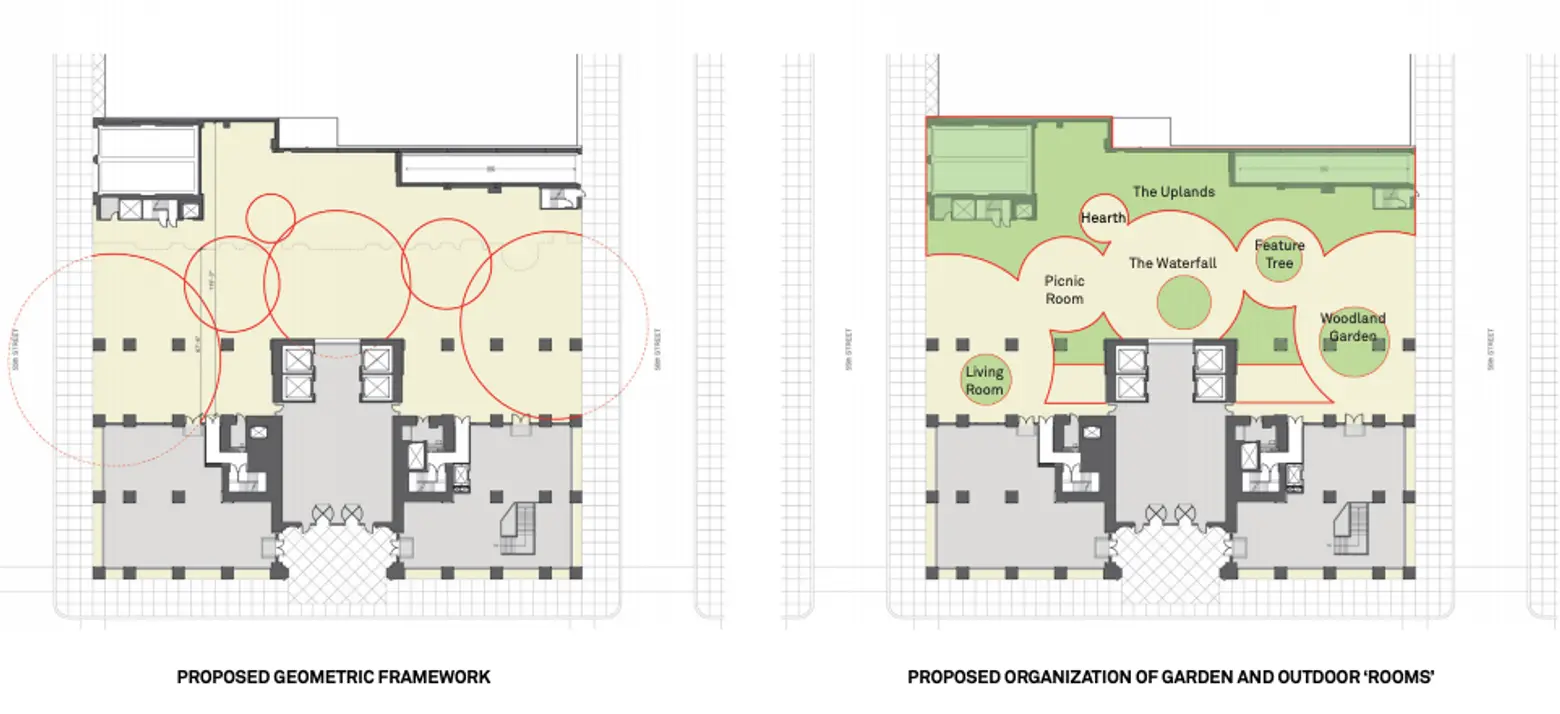
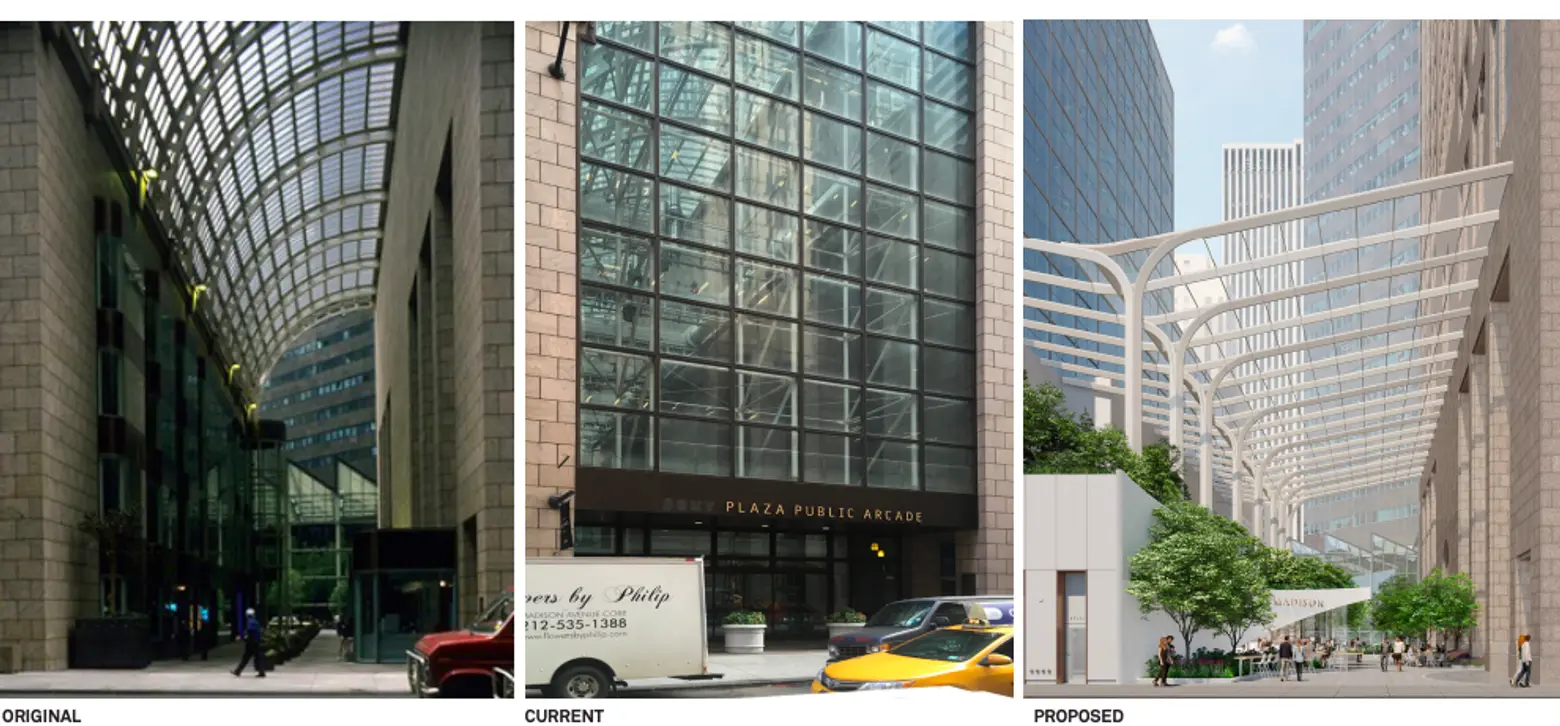
Pedestrian space, looking north

A big challenge to the acceptance by preservationists lay in the privately-owned public space (POPS) at the building’s street level. The new design nearly doubles the floor area in the rear arcade, creating a garden-like public space covered only by an airy glass canopy, with the current side street enclosures removed. Snøhetta’s new vision would bring the available public space to around 21,300 square feet with seating for 240 and plenty of greenery.
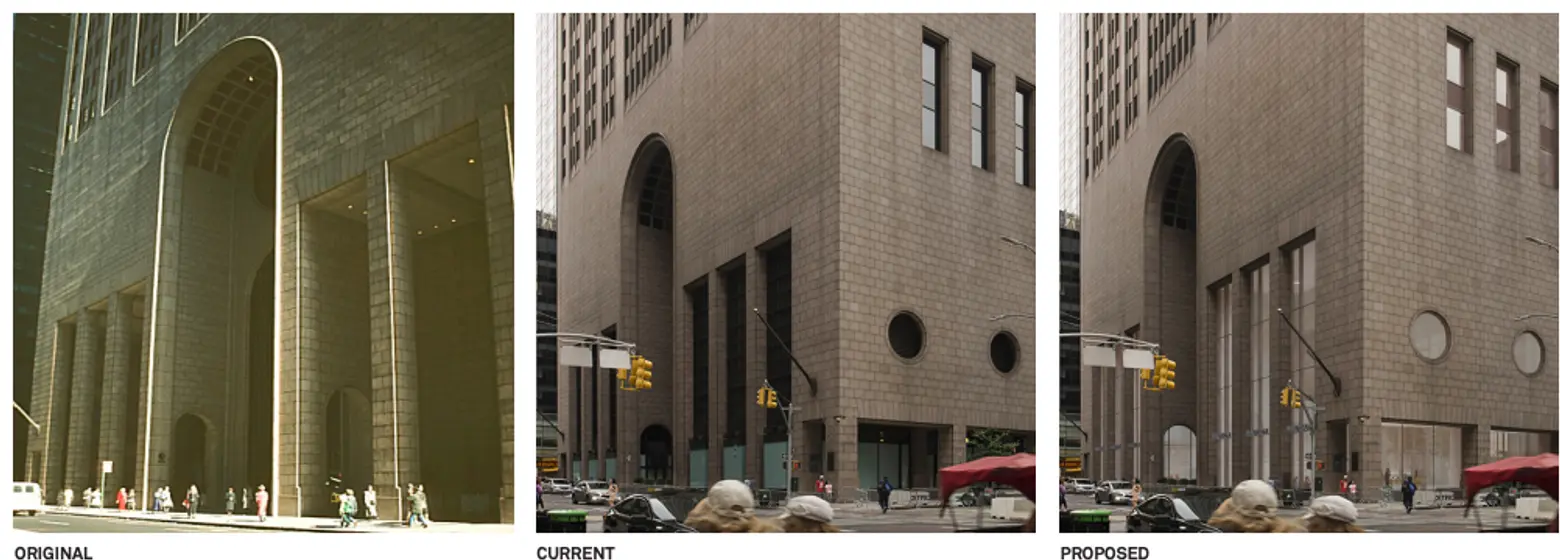
Madison Avenue, looking southwest.
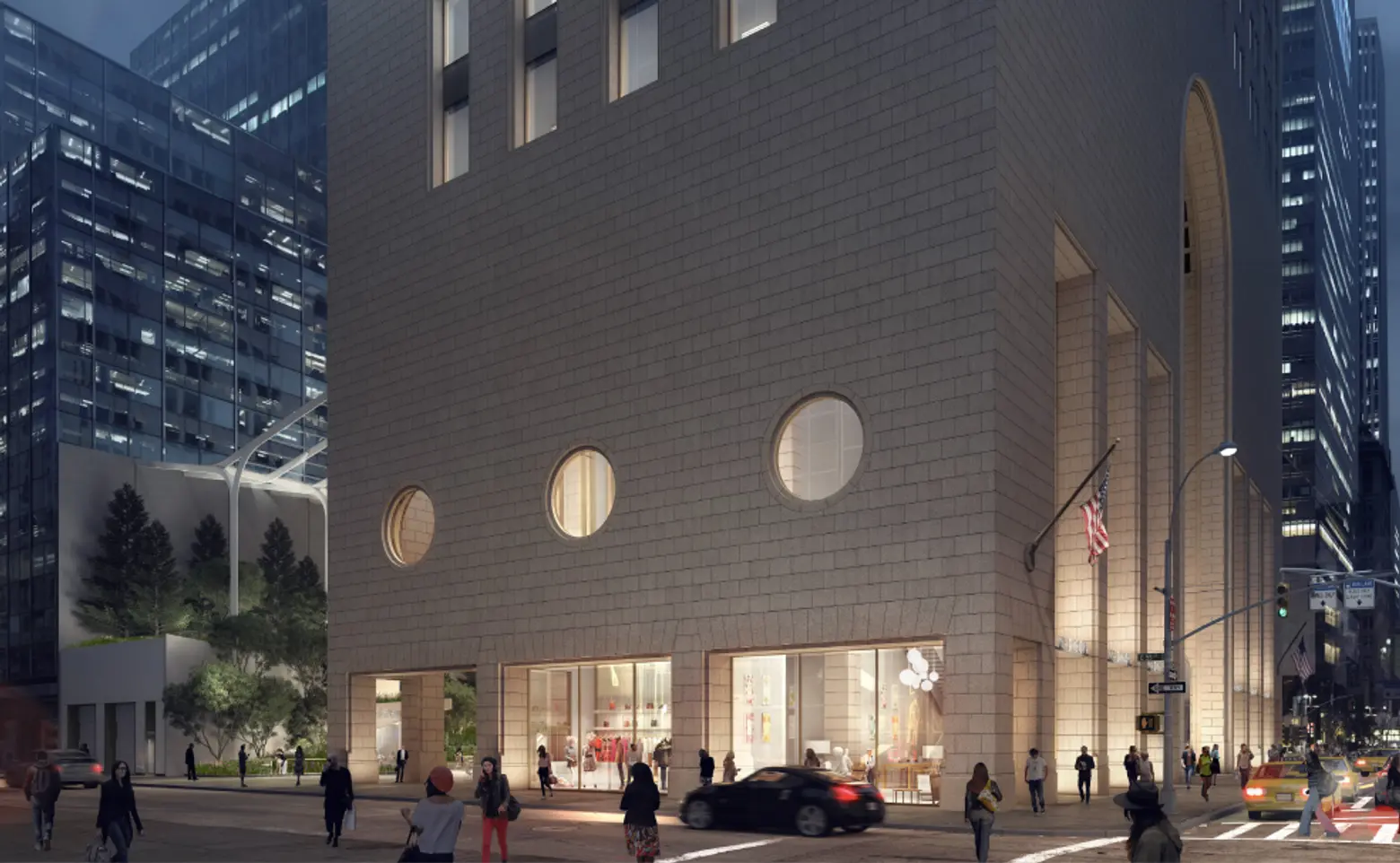
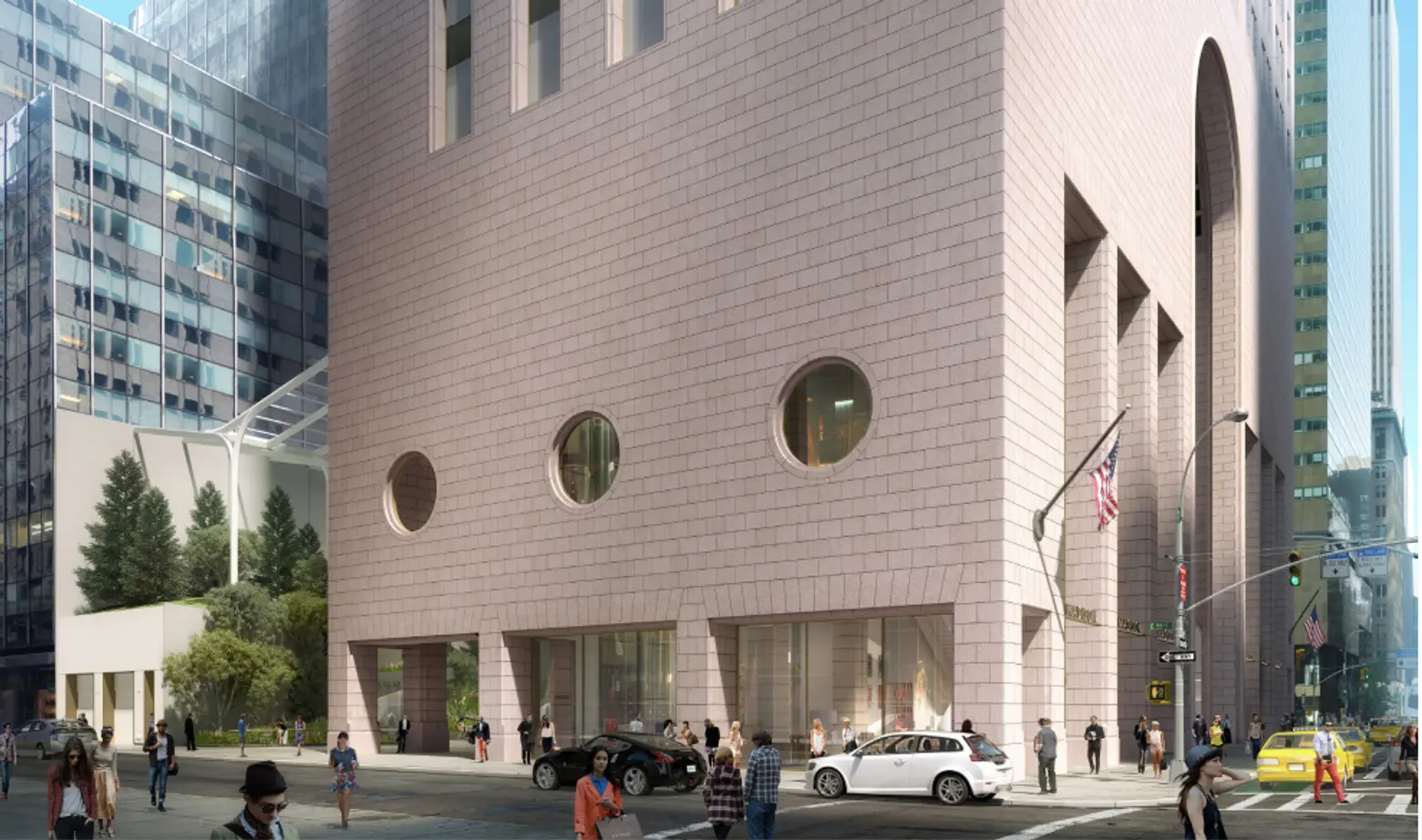
Olayan and development partners RXR Realty and Chelsfield have also presented the new design to Community Board 5. Olayan, who purchased the vacant tower in 2016 for $1.4 billion from Chetrit Group, estimates the project will cost about $300 million and hopes to reopen the building with 850,000 square feet of office space for lease by mid-2020.
RELATED:
- Snøhetta reveals more preservation-friendly redesign for Philip Johnson’s 550 Madison
- Preservationists, architects urge LPC to landmark Philip Johnson’s AT&T Building
- Landmarks votes to consider Philip Johnson’s postmodern AT&T Building for historic designation
- Robert A.M. Stern joins fight against Snøhetta’s plan to renovate Philip Johnson’s AT&T Building
Renderings courtesy of LMNB and Snøhetta.

